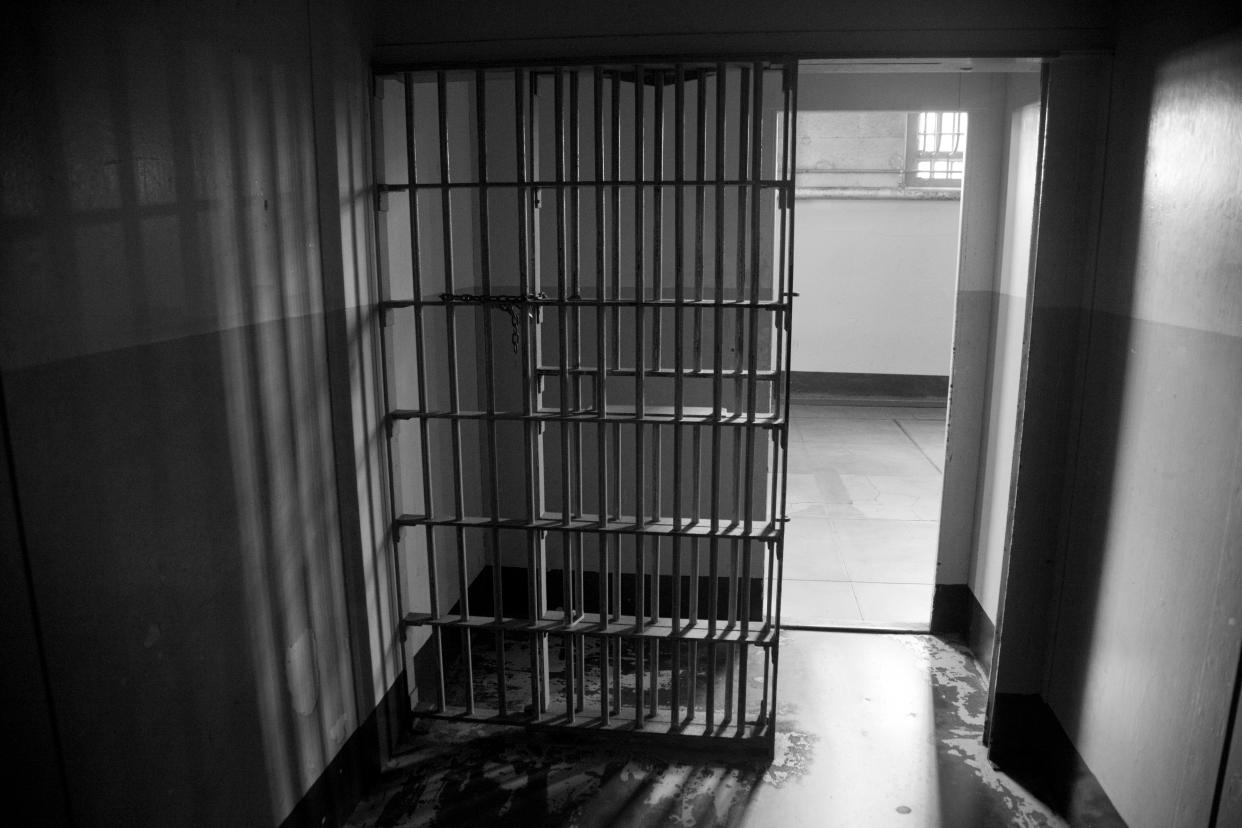Elderly mobster with late-stage cancer granted compassion release from prison

A convicted New York mobster-turned-snitch has been granted a compassionate release by a federal judge after being diagnosed with late-stage cancer and early signs of Alzheimer's disease.
Gregory Scarpa Jr, 69, is serving a 40-year prison term participating in several killings in the 1980s. He was a top ranking member of the Colombo crime family and later a criminal informant.
US District Court Judge Edward Korman ruled Wednesday that Scarpa will be released.
His original release date was set for 2035. He was convicted on federal racketeering charges in 1999 while incarcerated for other crimes.
Scarpa was diagnosed with late stage cancer during his time in prison. The New York Daily News reported that doctors had to remove a tumor from his throat.
The operation left a hole in his throat.
Scarpa apparently chokes on food so frequently that - as Mr Korman wrote in his decision to grant the release - he has taught himself how to do the Heimlich maneuver on himself.
Between Scarpa's cancer diagnosis, his trouble eating, and the signs that he's developing Alzheimer's, Mr Korman determined it was best to let the former mobster out.
"I do not minimize the evil acts Scarpa committed over the course of his criminal career," Mr Korman wrote. "The reality, however, is that Scarpa is a seriously ill man who is unable to care for himself and has little prospect of recidivating."
Scarpa has asked for early release in the past on the grounds that he insisted investigators in with information relating to the Oklahoma City bombing and the 1993 World Trade Centre bombing.
The former mobster tipped off officials to a bomb cache that his former prison-mate Terry Nichols had hidden in his home.
Scarpa initially offered the feds a note - allegedly written in code by Nichols - that explained the location of the explosives. He offered to decipher the note in exchange for a reduced sentence. His deal fell through after he failed to pass a polygraph test.
He eventually revealed the location of the explosives to a private investigator.
Scarpa also tried to have his sentence reduced by trying to convince federal agents there was a link between the US Mafia and al Qaeda terrorism. The FBI used Scarpa to gather intelligence for a short time, but eventually dismissed his theory as a hoax after he failed to produce useful intelligence.
Mr Korman attempted to reduce Scarpa's sentence by 10 years to reward him for helping investigators, but a federal appeals court reversed the ruling and reinstated the 40 year sentence.
Scarpa is the son of mafia hitman Gregory Scarpa, who was nicknamed “The Grim Reaper.”
During his time in the mafia, Scarpa was connected to several murders.
Prosecutors claim Scarpa shot alleged bank robber Robert DiLeonardi in the head for bragging about his heists.
They also believe Scarpa was the man who killed Alfred Longobardi, with whom he allegedly had a feud, and Anthony Frezza of the Gambino crime family.
Scarpa was also implicated in the 1987 murder of Joseph DeDomenico, who was accused of not sharing the earnings from his crimes with the rest of his crew.
In 1983, Scarpa was the mastermind behind a plot to kill Colombo crime family member Sal Cardaci. Members of the Colombo crime family believed Mr Cardaci was an informant.
Following Mr Cardaci's death, Scarpa ordered for his body to be buried in the basement of a store in Brooklyn.
Court papers suggest Mr Scarpa will live out the rest of his days with his sister in Florida.
Read More
Beloved Jeopardy! host Alex Trebek dies following cancer diagnosis
California snowplow driver discovers bodies of two murder victims

